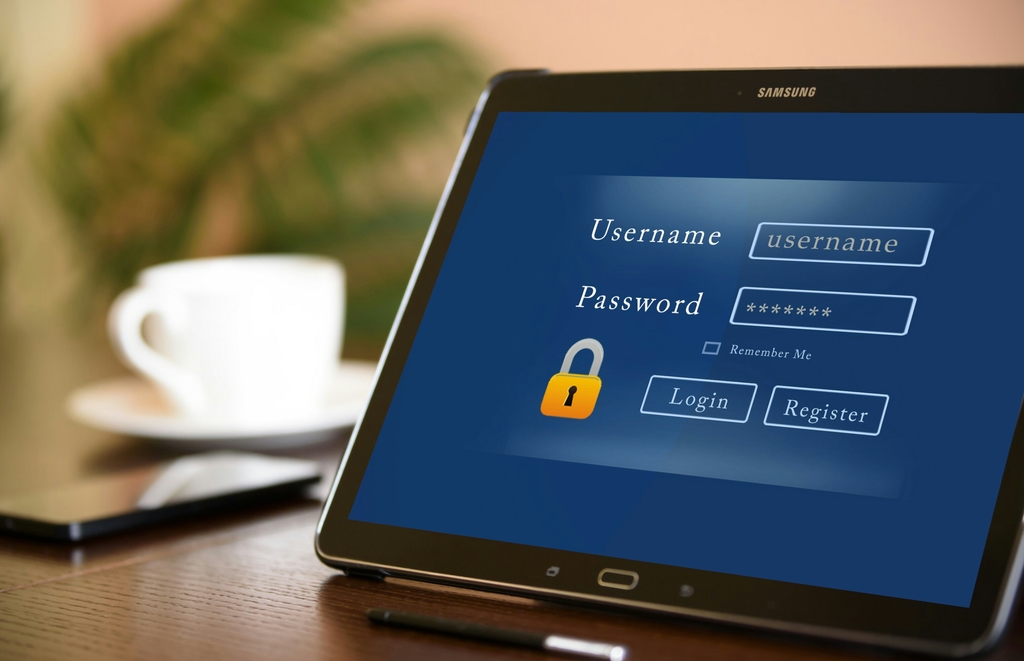Easy to Subscribe, Hard to Cancel
An illegal practice that won't go away.

So, almost exactly a year ago, I signed up for a promotional subscription to the Wall Street Journal. While the editorial page is rather silly, the news reporting is first-rate and its foreign affairs coverage fills some gaps that my primary subscriptions, to the New York Times and Washington Post, didn’t.
Because those two papers are aimed at a relatively mass audience, their prices are fairly reasonable. The Journal, by contrast, has always targeted a niche business audience that relied on it for crucial industry coverage unavailable elsewhere and has thus charged much more. Since I can’t monetize the business information—and, indeed, only tangentially cover those issues on the blog—I can’t justify a $39.99 monthly subscription. But it was worth $4 a month for the year. So, I signed up in a couple of minutes online.
(The current offer is worse:)

Aware that I would automatically get charged the radically higher rate if I didn’t cancel, I dutifully marked my calendar to do so. Alas, as you might have guessed, quitting is not nearly as easy as signing up.
No, you can’t do it via their customer service page.
They direct you to their chatbot but, alas, it won’t handle cancelations, either.
So, you have to call their 800 number. But, it turns out, they aren’t staffed on Sundays.
Incidentally, this practice is illegal in the Commonwealth of Virginia, where I reside, as it is required that “Each supplier making automatic renewal or continuous service offers through an online website shall make available a conspicuous online option to cancel a recurring purchase of a good or service.” What the enforcement mechanism is, I have no idea.
Indeed, the FTC ostensibly requires companies to “provide cancellation mechanisms that are at least as easy to use as the method the consumer used to buy the product or service in the first place.” Again, though, there’s clearly no actual enforcement of that policy.
Thankfully, I still have a couple of days to cancel. But I have a hunch that the 800 number is woefully understaffed. I’ll give it a shot tomorrow but, if my hunch bears out, I’ll just block it on my credit card.
UPDATE: Commenter @Sleeping Dog muses about workarounds to giving out credit card numbers when signing up for subscriptions and services. A Twitter friend points me to this Wirecutter report touting Privacy, a free service that seems to do just that:
Privacy is a free service that lets me generate one-time-use virtual payment cards with spending limits to protect my banking information from data breaches or unscrupulous online retailers. I particularly love using Privacy cards to sign up for free trials—it provides peace of mind in case I forget to cancel, and protects me from getting duped by deceptive design that makes it difficult or impossible to do so.
Instead of trusting dozens of potentially vulnerable retailers with my card info, I share my banking details only with Privacy. The company publishes its security policies online, and they include all the basic precautions Wirecutter privacy editor Thorin Klosowski likes to see from companies that handle financial data. While free services are often funded by personal data collection and advertising revenue, Privacy makes money by collecting transaction fees from merchants. Since even large retailers and financial institutions can suffer a security breach, giving my real card number to as few places as possible minimizes the risk it will be included in a leak.
I’ll definitely give it a try.






The subscription offers that come with pre-ckecked renewal boxes are infuriating, too.
Like the gym membership that requires an actual letter to quit.
A couple of times, I’ve resorted to having the CC company issue me a new number for my account. The CC company wouldn’t cancel the auto payment at my request, saying they would only do so at the vendors request, but they would issue a new number.
I’ve never tried it, but I wonder if the subscription service would take a debit card number?
A few years ago at my previous residence, I decided to cancel ADT. It could not be done online, so I had to call. It took me being transferred to multiple persons before I could formally request the cancellation and every time I said I wanted to cancel, the representative on the phone would either ask me a question designed to make me fear for my family should I no longer have an alarm system, or make some offer to try and entice to stay. Clearly, this was their job and they way they were trained. I tried to be patient but started just repeating “I want to cancel” and practically to the shouting stage before she finally relented.
Good luck with canceling via credit card. I had one subscription that was impossible to cancel through what one might consider usual procedures, but the credit card expiration date was coming up and the subscription wasn’t that much, so I figured it would die with the useless credit card number.
SOMEHOW THE MONEYGRUBBERS CONVINCED THE CREDIT CARD COMPANY TO CARRY THEM OVER
I seem to recall that this was the subject of one part of the massive legislation Nancy Pelosi’s and Chuck Schumer’s Congress passed. Maybe it’s not in force yet. Or maybe Republicans took it out.
Have you checked your library for online access to the various news websites?
San Francisco, for example, offers:
– the NY Times, as a 72-hour free access period with “Basic Digital Access Subscription” to the “East Coast Late Edition of New York Times (text version)” via a simple activation link to use for a PIN every 3 of days
– The Wall Street Journal, Eastern Edition (ProQuest) to “[a]ccess full-text articles and abstracts from The Wall Street Journal, 1984 to present. Also available: The Wall Street Journal Online, 2010 to present.”
Now maybe the ease of access or formatting or time-delay (?) for postings won’t work for your business needs, but maybe it’s worth checking out.
I had a similar experience to Cheryl. I had a subscription that I wanted to end. I do keep a record of annual subscriptions so I was pretty sure that it was due to be renewed soon but I forgot which card I had used. I checked the account status on their website. The card I had used had expired and I had the new card. However the subscription status on their website had the new card expiration date. To cancel I had to call an 800 number.
I called the number and got through on the second ring. They said they would cancel the subscription. I asked the person how they knew the new card expire date. She said that there is a service that they use that can get the the new information on expired cards. She didn’t know the name of the service. That was just what she was told by her supervisor. They did cancel the subscription.
@Cheryl Rofer:
I can explain why. Credit card companies count it as a “service” to *you* the consumer, that they will accept your old credit card companies for renewals. But only if the company in question pays for the “service”.
Translated: you can’t prevent your credit card company from accepting your old credit card number unless you *opt* out of *that* service, and it won’t surprise you that they make it just as difficult to opt out of that as WSJ and everyone else makes it to cancel.
I’d recommend filing a complaint with your state consumer protection office:
https://www.oag.state.va.us/consumer-protection/index.php/file-a-complaint
Although I wouldn’t expect much since I’m sure Jason Miyares considers any attempt to stop a corporation from shaking down their customers for more money to be communism.
My concern here is that if this becomes common, the corporate response will be to claim your subscription was still active, so you owe them an upaid debt and selling it to a debt collection service.
The local landline telephone exchange where I live is operated by Frontier. There is no CATV service at my address so I had Frontier DSL internet service till the monthly rate went over my budget. I had dropped the Frontier landline telephone service several years ago. When I called to cancel the internet I was surprised that it didn’t take all that long to reach a human. I got the reps name right away and wrote it down and recorded the date and time of the call. The guy didn’t give me any grief and assured me that the bill that I had in hand would be the last one I would receive.
One month later there was another bill in the mail charging me with another month of service in advance. Somehow I was not surprised.
Called back and again got through to a live representative with minimum delay. I explained the situation and she put me on hold for a few minutes. When she came back on line she said she had cancelled the new bill and stated that there would be a $10 disconnect charge.
When the final bill arrived it was $8.
The only problem I can recall cancelling a service, was the first ISP we had at work. They required a signed letter requesting termination of service, which was ridiculous considering they had no problem signing us up over the phone.
I forget why we cancelled, though I recall it was a dial-up service and I also used it at home. It might have been when we got broadband late in the 90s.
Recently I cancelled Amazon Prime the day before the monthly bill, and got billed anyway the next day. So I cancelled online again, and got a refund without asking.
@Cheryl Rofer: Merchants are able to subscribe to changes to your card, ostensibly so that you still get your Strawberry Jam of the Month subscription despite the card expiring.
Netflix, for example, lobbied hard for the card-updater services to be legal – because cards expiring were a threat to their business model.
Some cards let you log in and see who has your card saved, but it’s a real problem.
@Robert in SF: Databases almost never update fast enough to be useful for daily news commentary. There are workarounds for some of the papers, including the NYT, in that a lot of their stories are copied by YahooNews—but, again, often not in anything like real time.
@James Joyner:
Ah well, if you not for your use case, perhaps my comment will be a good head’s up to others that could benefit from the reminder.
The WSJ must have changed how you set to cancel, I have a cancel email confirmation from 7/22 and did this online, no call in to a call center.
James, maybe double check if you accidentally missed a link you can click on that let’s you follow an online path to cancel
I only sign up for digital newspaper deals because I also know it is easy to cancel.